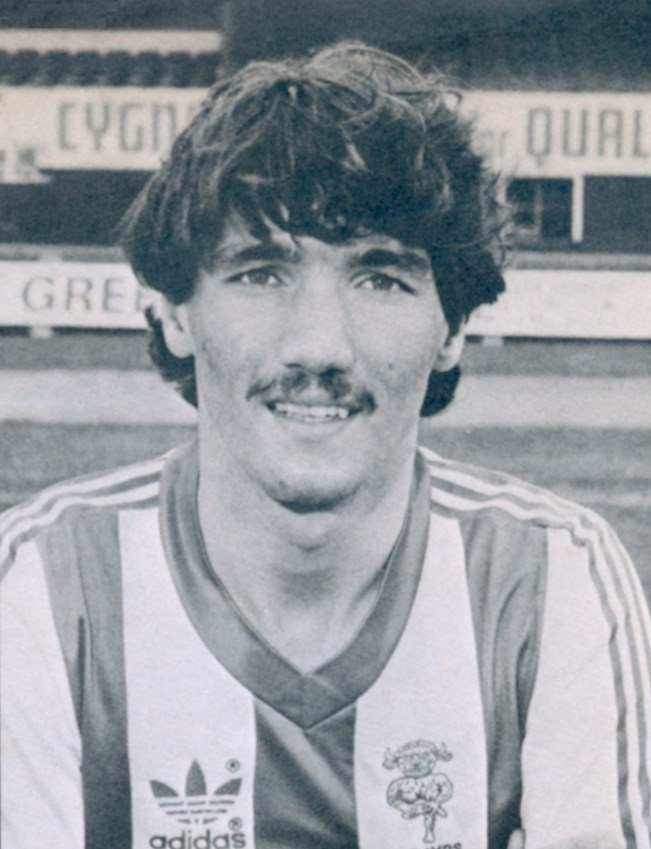The Imps line up against the Black Cats on Saturday in our first meeting this century, and first league fixture since 1961. Numerous players have since starred for the Imps having been born in Sunderland, including the club's record appearance holder Grant Brown. Here, we take a look at Mick Harford's playing career, a Sunderland-born favourite at Sincil Bank, who fired goals in at both clubs.
Born in Sunderland in February 1959, Mick Harford joined the Imps from his local side, Lambton Street Boys Club, along with Mick Smith, Keith Laybourne and Alan Eden as a teenager in July 1977 and made his debut for the Imps coming on as a substitute for Eden during the 2-0 home defeat by Gillingham on December 10th 1977. His first goal came along on New Year's Eve of the same year as City drew 2-2 at Chester.
After starting his career as a midfielder, it wasn't long before 'Big Mick' was pushed forward and he soon became one of the best and most feared centre-forwards in the lower leagues and after finishing the 1979/80 season as City's leading scorer with 16 goals from 35 games it was only a matter of time before he departed for a bigger club.
The beginning of the 1980/81 season could hardly have been better for Mick who followed up his tremendous hat-trick against Hull City in the League Cup with two more in the second leg as City registered a 7-0 aggregate win over the Tigers. After scoring three times in the season's first two league matches the scouts were turning up in numbers to watch the then 21-year-old in action.
Mick's final goals in a Lincoln shirt came in the form of another hat-trick, this time in the 5-0 win over Torquay United on November 12th 1980. He missed the next two games due to suspension before playing his final game at Sincil Bank on December 20th, three years after his debut. In total he played 127 times in League and cup for City, scoring 46 times.
Newcastle United were the club who tempted Mick away from Sincil Bank for a then club record fee of £180,000 but he never really made an impact at St James' Park and was sold eight months later to Bristol City for £150,000.
Seven month on he joined Birmingham City where he stayed for three seasons scoring 25 times. He then moved on to Luton Town where he had his most successful time of his career. He netted 57 times for the Hatters helping them to success in the League Cup in 1988.
His career hit its peak in February of the same year when he came on as substitute for Clive Allen during England's friendly in Israel becoming one of the few City products to win full international honours. One more cap followed - at Wembley Stadium against Denmark the following year.
Mick's next move was to Derby County who he joined for £450,000. He stayed at the Baseball Ground for 18 months before rejoining Luton. He played a further 29 games for the Kenilworth Road side before joining Chelsea. Further moves followed taking him to Sunderland, Coventry City and Wimbledon.
With a career record of 583 appearances and 186 goals Mick finally hung up his boots in 1998 to concentrate on coaching.
